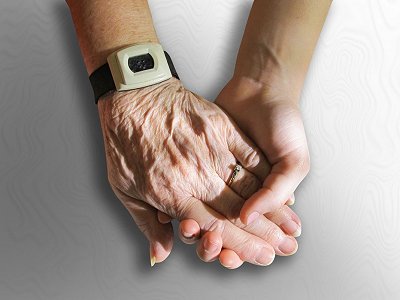
STICKS AND STONES
When asked what things he’d like to do if made ruler of the world for a day, the author Howard Jacobson said he would ban T shirts with messages emblazoned across their front. In fairness, he said would sort out bigger issues too, but this one gripped him especially because, in his view: words are sacred and not to be wasted.
It means I’d have to get rid of a number of T shirts I quite like, but I agree with his central point: words have profound, spiritual value.
There are so many words today, more than ever before. We create as much information every ten minutes as the first ten thousand generations of humans combined. Under this deluge, words can become devalued; the more so, given how many lies there are every ten minutes of data production. The ability to distinguish the truth from a lie is perhaps the greatest challenge the internet has thrown up. But there is another, and that’s how words have become weaponised.
Originally designed to bring us closer together, the digital architecture has contrived to poison our relationships, allowing free reign for bullies, misogynists and racists to indulge their prejudices.
There is a link between lying and abuse online and Howard Jacobson nailed it. When words are no longer considered sacred, people use them to fend off the truth and to attack other people. And it works. Lies are presented as facts and phrases are repeated endlessly until they become believable. And as adults we know the old adage ‘sticks and stones may break my bones but words will never hurt me’ is just not true. Words have great power to heal but also to injure; to comfort but also to distress.
Which brings us to the riff from St James chapter 3 where he gets serious momentum going on the influence of the human tongue.
How great a forest is set ablaze by a small fire! And the tongue is a fire he says.
And his was a world where the words were only heard by those within earshot. Yes, the hearers could pass those words on to others, but it was a slow and limited process. If even that is described by St James as setting a whole forest on fire, what would he make of our capacity to speak to the whole world from our sofas holding a smartphone? For St James, social media would be a weapon of mass destruction compared to the human tongue. This shows how complicated and far-reaching our moral choices have become now, and a need for self-restraint that surpasses all that has gone before.
But St James helpfully distils the moral challenge down to one observation. With our mouths:
We bless the Lord and Father, and with it we curse those who are made in the likeness of God
It’s one of those phrases in scripture that act like a verbal checkmate. There is simply no coming back from it. When we attack someone verbally, we are attacking God himself. Yet still we do it. It is naïve to think we can change this easily. It is such an ingrained habit in most people, but perhaps there are more positive ways of looking at it.
If words are sacred, what does that mean? The first thing is how we use them when talking with God. Scripture is, first up, a place where people express praise and gratitude to God. As we thank God for good things, we become more aware of those good things, and yet more grateful, in a virtuous circle. I have listened to the testimony of people who say that the regular habit of thanking God transforms their view of life.
But there is more. Our culture is short on encouragement. In close knit circles, it can work quite well. But once we move beyond those immediate support structures, the gift of encouragement can seem to evaporate like mist on a summer’s morning. A consumerist, competitive, rights based culture is the hard and rocky soil in which words of encouragement are sown. But they are deeply needed. Adults need as much encouragement as children. One specific calling we have may be to give this encouragement to as many people as possible, and especially strangers or people working in the service sector, for they rarely get what they deserve.
Which brings me to those opening words of St James in chapter 3:
Not many of you should become teachers…for you know that we who teach will be judged with greater strictness.
Ouch. And the thing that’s especially ‘ouch’ about it, is that it isn’t just God who judges more strictly, it’s other people too. Pray for your clergy. They are human. But a calling to the priesthood gets people noticed. It’s the dog collar thing, and it’s still universally recognised. There is a witness to be made. They want to get that right by God. Pray to God for him that they do.
And their witness is joined to yours. For all I have spoken of the power of our words, something notable is going on in public life. Trust levels have fallen dramatically in the professions who use words a lot: politicians, estate agents, journalists…clergy. Words alone have become debased. To get noticed, we need to do more. Trust levels have held up best in those who patch up, protect and develop the human body: doctors, nurses, the armed services, teachers.
We want to share the good news about Jesus and all God has done through him for us. The kindness of our practical words should be supported by the practical action of our kindness. The Gospel is about preaching the message of Jesus and showing the kingdom is drawing near in the care and healing of other people’s bodies. This is our task. As the saying goes, if you want to know what someone believes, look at what they do, not at what they say.
POPULAR ARTICLES

God In The Cow Shed
2020 has been dominated by the C word. Not that C word. I mean conspiracy theory involve space. Some people believe the

Viral With The Holy Spirit
Since the tech revolution, insurgent new start-ups have enjoyed using the word ‘disruption’

Long Lost family
Some types of storytelling mess with your brain. Intentionally. Like one of those novels where you assume

Valuing Age
Lots of work is being done round unconscious bias in society, especially around gender and ethnicity

